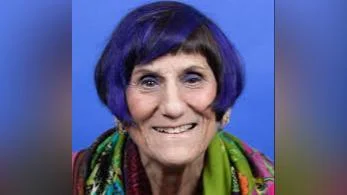Peter Salovey President | Yale University
Peter Salovey President | Yale University
Yale scientists have developed a novel chemical compound, KL-50, that targets drug-resistant brain tumors without harming healthy surrounding tissue. The research, published in the Journal of the American Chemical Society, represents a significant advancement in the development of "chameleon compounds" designed to combat various aggressive cancers.
Approximately 20,000 Americans are diagnosed with glioma annually, with about 13,000 cases being glioblastomas—the most aggressive subtype of malignant brain tumor among adults. Despite treatment with temozolomide, many patients develop resistance within a year, resulting in a five-year survival rate of less than 5%.
In 2022, Yale chemist Seth Herzon and radiation oncologist Dr. Ranjit Bindra devised a new approach to more effectively target glioblastomas. They created chameleon compounds that exploit a defect in the DNA repair protein O6-methylguanine DNA methyltransferase (MGMT). In many cancer cells lacking MGMT, these compounds damage DNA by initiating primary lesions that evolve into toxic secondary lesions known as interstrand cross-links. Healthy tissue is protected by MGMT's ability to repair these primary lesions before they transform into deadly cross-links.
The recent study by Herzon and Bindra focuses on KL-50. "We used a combination of synthetic chemistry and molecular biology studies to elucidate the molecular basis for our earlier observations," said Herzon. "We show that KL-50 is unique in that it forms DNA interstrand cross-links only in a DNA repair defective tumor. It spares healthy tissue."
KL-50's effectiveness lies in its timing; it generates interstrand cross-links more slowly than other agents, allowing healthy cells sufficient time to use MGMT to prevent these links from forming. "This unique profile suggests its potential for the treatment of drug-resistant glioblastoma," said Bindra.
Herzon and Bindra emphasize the broader implications of their research for developing treatments targeting other cancers with specific DNA repair defects.
The study's first author is Eric Huseman from Marquette University. Co-authors include researchers from Yale and the Broad Institute of MIT and Harvard. Funding was provided by the National Institutes of Health, U.S. Department of Defense, Yale Cancer Center, and Modifi Biosciences—co-founded by Herzon and Bindra—which holds exclusive rights to these findings.



 Alerts Sign-up
Alerts Sign-up